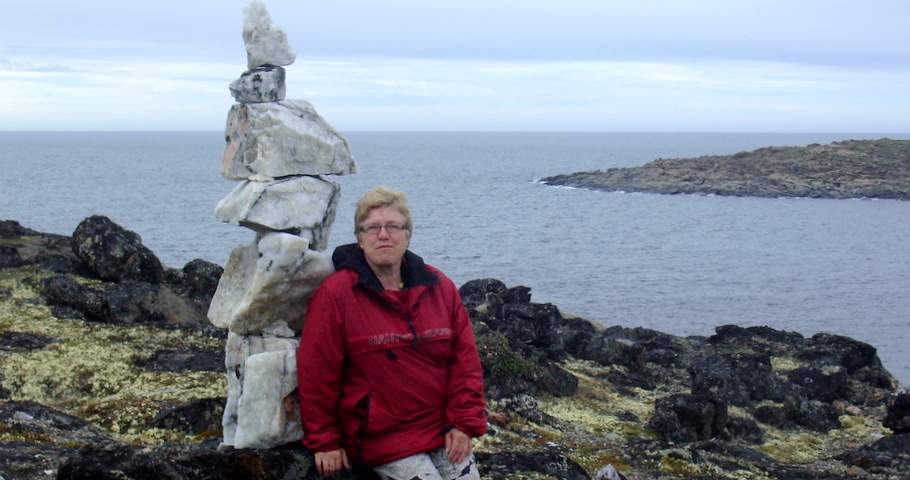Instead of being at home with their parents, brothers, and sisters, tens of thousands of First Nations children are in foster care, staying with distant relatives or living in institutions.
Family dysfunction rooted in poverty, poor health and oppressive legacy
Although acknowledged by “Expert after expert (who) recognize that family dysfunction is more broadly rooted in poverty, poor health and the oppressive legacy of the residential school system that robbed the parents of first-hand knowledge of how to raise a family”, Indigenous children end up in non-native homes on the grounds that they are high needs children.In a population of about 1300 residents of an Inuit community, I remember a few children that could be qualified as “special needs”, but certainly not 50% of them, as claimed by certain professionals. Is it like mental health where criteria have widened so much that so many more children than back in 2009-2010-2011 now fit into new categories of “special needs”?
Children are issues of concern for all citizens of Canada
What I do agree with is that children are issues of concern for all citizens of Canada and we must all strive to promote child care improvements nationwide. We need to promote better outcomes for children and youth.All children must grow up knowing that they matter - that they are precious human beings deserving love and respect and a home where they are protected.
As we all know, children hold the keys to a future bright with possibilities in a society of equals. Our role as a society is to encourage and support governments to adopt more effective and responsive strategies, giving full expression to the rights and protections for children and youth.
No road connects the communities
No road connects the Northern communities of the Northern region between them or to southern Canada. Air transport provides links throughout the year. Non-perishable food and other necessary goods are transported by ship during the summer. Locally, Inuit rely on snowmobiles, ATV’s and motor boats for hunting, fishing and trapping and to visit members of their families in neighboring communities. Said communities are at least 200 km away, so 6 hours for a parent to visit his children by ATV or skidoo.Children are often more vulnerable when they are removed from their birth families
Therefore, the children are very vulnerable when they are removed from their birth families. When they are removed not only from their families but from their community, children lose out on being raised by their own families, in their own communities. And they lose the safety net of people looking on, who know him and the family that took him in. That’s not a fool-proof system either but it certainly is better than when they are thousands of kilometers away.The numbers of Inuit children in foster care are a concern of importance to the Inuit but should also be to all Canadians. A part of history that ties onto what is still being done today to the Inuit is the beginning of the settlements where the Inuit did not choose their new lifestyle. In the same way, they are not choosing to have their children sent so far away. The inefficiency of the social safety net affects children as much as their living conditions affect their health and even their behavior. Their access to quality education, healthy foods, and adequate housing conditions plays a vital role on the impact of their welfare.
Because policies and practices still reflect longstanding and deeply embedded mother-blaming culture and father invisibility ideologies that shape child protection systems, the children are robbed of the opportunity to be raised by the people who care most for him. There are times when it is completely justified to remove a child from his community but I am not convinced that all children need to be removed and sent hundreds of kilometers on or out of the territory.
Petition to empower the mothers and to reduce placements of the children
Like all that matters, we have to make the connections with what we can all do to help. This petition to be given to PM Justin Trudeau hopes to restore dignity but also their rights to a stable family and harmonious community.My intention is to work for the children
From the time I worked in Nunavik until now, I really think things could have been done differently. Maybe we need to re-write some policies. Policies and practices still reflect longstanding and deeply embedded mother-blaming culture and father invisibility ideologies that shape child protection systems.The intention of No Child Should Take the Long Way Home is to work for the children so that things can happen differently. I feel that mothers should have all the help they can be given because they are not dissociable from their children.
One aspect in particular needs expansion: clearly, education, so as to allow all to know what they are dealing with regard to the law and thus be better prepared when they are facing the courts of justice.
Family law is a complex tool and aspects of the protection law have to be understood. An example of this is the “notion of risk".
The Honourable Carolyn Bennett, M.D., P.C., M.P., Minister of Indigenous and Northern Affairs resumes it best: ‘’Children are our future, and to give them the best possible start in life, we must collectively move from an intervention-based approach of apprehension and protection to prevention-based approaches to community, families and children's rights and well-being. Working in genuine partnership with First Nations is critical to developing community-led solutions for reform that will reduce the number of children in care and result in better health, education and economic outcomes.”








No comments:
Post a Comment